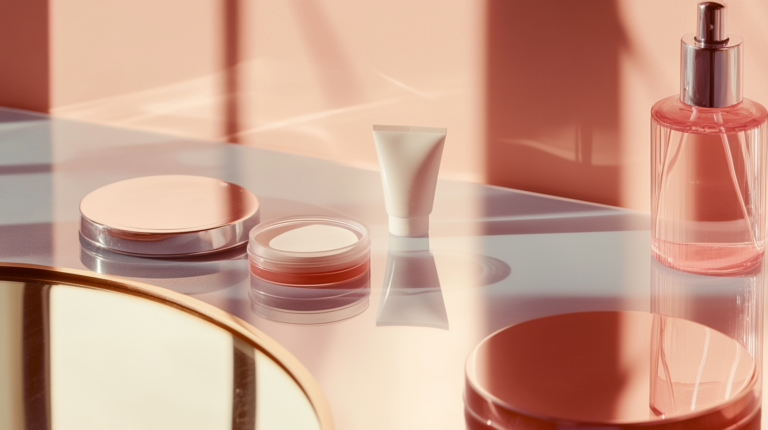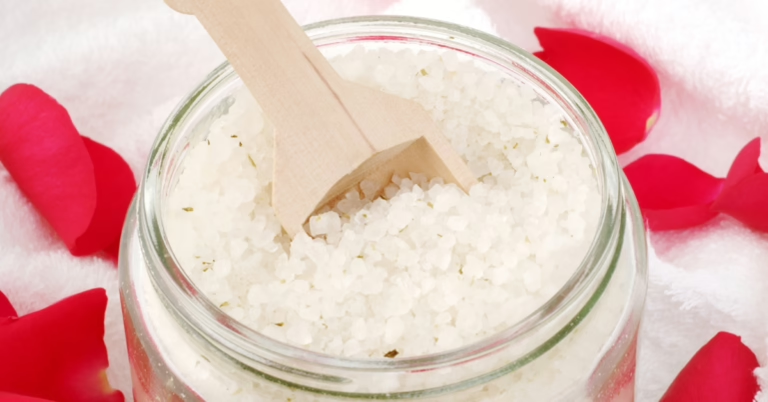Uses of Niacinamide Serum and How It Transforms Your Skin
Niacinamide serum has become one of the most talked about ingredients in the skincare world, and for good reason. Whether you’re looking to improve your skin’s texture, reduce signs of aging, or simply achieve that radiant glow, niacinamide has got you covered. This versatile ingredient works wonders for nearly every skin type, making it a staple in both professional and personal skincare routines. But what exactly is niacinamide, and how can you benefit from using it? In this blog, we’ll explore the uses of niacinamide serum, why it’s so effective, and how you can incorporate it into your skincare regimen.
What is Niacinamide?
Niacinamide, also known as Vitamin B3, is a watersoluble vitamin that works to improve various aspects of your skin. It’s packed with antioxidants and has antiinflammatory properties, which make it a key player in maintaining healthy skin. When used in serum form, niacinamide for skin is highly effective as it penetrates deeper into the layers, offering more concentrated benefits.
5 Thing Niacinamide Serum May Do To Your Skin
1. Reduces Hyperpigmentation
Dealing with stubborn dark spots or uneven skin tone? Niacinamide is known for its ability to fade hyperpigmentation by inhibiting the transfer of melanin, the pigment responsible for skin discoloration. This makes it ideal for those looking to brighten their complexion and achieve an even skin tone.
2. Strengthens the Skin Barrier
A healthy skin barrier is crucial for locking in moisture and protecting against environmental stressors. Niacinamide serum helps strengthen this barrier by boosting the production of ceramides, which act as the skin’s natural protective layer. If your skin often feels dry or irritated, niacinamide is a great way to repair and reinforce your skin’s defenses.
3. Minimizes the Appearance of Pores
One of the standout benefits of niacinamide is its ability to reduce the appearance of enlarged pores. By regulating oil production, it keeps your pores from becoming clogged, which in turn makes them appear smaller. For those with oily or combination skin, this is a gamechanger.
4. Reduces Inflammation and Acne
Struggling with acne or sensitive skin? Niacinamide has antiinflammatory properties that help soothe redness and irritation. It also regulates sebum production, reducing the likelihood of clogged pores and breakouts. For those dealing with acneprone skin, niacinamide offers a gentle yet effective solution.
5. Fights Signs of Aging
Niacinamide is a fantastic antiaging ingredient. It stimulates collagen production, which helps reduce the appearance of fine lines and wrinkles. By improving skin elasticity and firmness, niacinamide can give your skin a more youthful look. It’s a musthave in any antiaging skincare routine.
How to Use Niacinamide Serum in Your Skincare Routine
Adding niacinamide serum into your daily skincare regimen is simple. Follow these steps for optimal results:
1. Cleanse: Start with a gentle cleanser to remove dirt and impurities from your skin.
2. Tone: Apply a toner if you use one, to prep the skin for better absorption of products.
3. Serum: Now apply your niacinamide serum. Just a few drops are enough to cover your entire face.
4. Moisturize: Finish with a hydrating moisturizer to lock in the benefits of the serum.5. Sunscreen: During the day, always follow with SPF to protect your skin from UV damage.
For best results, use niacinamide serum both in the morning and at night. It pairs well with other skincare ingredients like hyaluronic acid and can be used alongside most active ingredients without irritation.
Who Can Benefit from Niacinamide Serum?
Everyone! One of the best things about niacinamide is its versatility. Whether you have dry, oily, combination, or sensitive skin, niacinamide for all skin types can provide noticeable improvements.
Oily Skin: Niacinamide helps regulate oil production, preventing shine and clogged pores.
Dry Skin: Its moistureboosting properties keep dry skin hydrated and comfortable.
Sensitive Skin: Its antiinflammatory effects make it soothing for easily irritated skin.
Aging Skin: If you’re looking to reduce wrinkles and maintain skin elasticity, niacinamide is a great addition to your routine.
Potential Side Effects of Niacinamide Serum
While niacinamide serum is generally considered safe for most skin types, there are a few potential side effects that users should be aware of:
1. Mild Irritation: In some cases, people may experience mild irritation, such as redness or itching, especially when starting with higher concentrations of niacinamide. It’s always a good idea to begin with a lower concentration (around 5%) and gradually increase the dosage to see how your skin reacts.
2. Allergic Reaction: Though rare, some individuals may be allergic to niacinamide. Signs of an allergic reaction can include swelling, itching, or a rash. If you notice any of these symptoms, discontinue use immediately and consult a dermatologist.
3. Overuse Leading to Skin Sensitivity: Using too much niacinamide serum or layering it with other strong active ingredients (like retinoids or chemical exfoliants) may lead to skin sensitivity. It’s essential to use niacinamide in moderation and avoid mixing it with other potentially irritating ingredients unless advised by a skincare professional.
4. Purging: In some cases, you might experience an increase in breakouts when first using niacinamide, as it regulates oil production and clears out pores. This purging phase usually subsides after a few weeks as your skin adjusts to the product.
Precautions to Avoid Side Effects
Patch Test: Always patch test the serum on a small area of skin (like the inside of your wrist) before applying it to your face. This helps you gauge how your skin will react.
Start Slowly: Begin with a lower concentration if you’re new to niacinamide or have sensitive skin.
Don’t Overuse: Limit the use of multiple active ingredients simultaneously.
Avoid Mixing with Vitamin C: While many people use both niacinamide and Vitamin C, some skin types may react to this combination. It’s best to use them at different times of the day.
While these side effects are rare, it’s important to listen to your skin and adjust your routine accordingly. Most people tolerate niacinamide serum well, but taking these precautions will ensure you get the maximum benefit with minimal risk.
To Sum Up
Niacinamide serum is truly a powerhouse ingredient that can transform your skin. From reducing hyperpigmentation to calming acne and minimizing the signs of aging, its uses are vast and beneficial for a wide range of skin concerns. If you haven’t already, now is the time to incorporate this wonder ingredient into your routine. Your skin will thank you!
Ready to add niacinamide serum to your skincare lineup? Whether you’re dealing with dark spots, acne, or just want to maintain a radiant complexion, niacinamide serum offers the solution you’re looking for. Get glowing, healthy skin by making this serum a staple in your skincare routine.
Frequently Asked Questions (FAQs)
1. Can I use niacinamide serum every day?
Yes! Niacinamide is gentle enough for daily use, both morning and night.
2. Can niacinamide be used with other active ingredients?
Absolutely. Niacinamide pairs well with most skincare ingredients, including hyaluronic acid, peptides, and retinol.
3. How long does it take to see results with niacinamide serum?
You may notice brighter, more even skin within a few weeks, but for full benefits like reduced hyperpigmentation or improved elasticity, give it 8–12 weeks.







